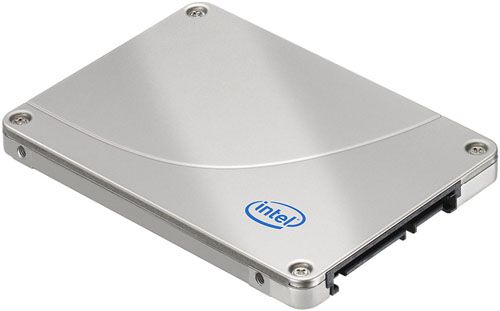From our front-page news:
Does there exist a computing enthusiast right now who wouldn't want a solid-state disk in their PC? Of course not, and as it stands, there are many who've opted to upgrade their storage and make their computer all the more faster, from quicker application launching to smoother operation. What's not to like? Of course, there's the costs and densities, but even those are getting better as time goes on.
With SSDs hogging so much of the computing limelight lately, what on earth could dampen its outlook? Well according to a report written by Objective Analysis, a Los Gatos, California firm, Intel's Braidwood (seriously, that's a code name?) has a good chance at it. In the simplest of explanations, Braidwood would add one of Intel's NAND flash memory chips directly to the motherboard, allowing for improved performance.
Ranging in densities from 4GB - 16GB, and price-ranges of $10 - $20, this addition would promise to increase to reliability and overall system access speeds. It could act as a cache and allow data to be written to the hard drive in such a way that it won't lag your machine, which is one of the major benefits of SSDs. Plus, as the chip would be based on SLC technology, it would be reliable, fast, and still much cheaper than typical DRAM.
The report clearly states that the technology has real potential to hurt SSD sales, since the overall performance boost would almost negate the overall speed increase that an SSD would offer. Intel disagrees and claims Braidwood has huge reliability features, which is no doubt true. In the end, I find it hard to believe that Braidwood could actually lesson the desire for people to own SSDs, but it will be interesting to see how things pan out when the technology is launched next year.

An Intel spokesman disagreed with Objective Analysis' premise that Braidwood could hurt SSD sales, saying "It's not just the performance, but also the added reliability...[SSDs] can help facilitate versus a hard drive. We see a long life ahead for SSDs, and won't stop inventing a variety of other technologies that make computers faster and/or more energy efficient."
Source: Computerworld
With SSDs hogging so much of the computing limelight lately, what on earth could dampen its outlook? Well according to a report written by Objective Analysis, a Los Gatos, California firm, Intel's Braidwood (seriously, that's a code name?) has a good chance at it. In the simplest of explanations, Braidwood would add one of Intel's NAND flash memory chips directly to the motherboard, allowing for improved performance.
Ranging in densities from 4GB - 16GB, and price-ranges of $10 - $20, this addition would promise to increase to reliability and overall system access speeds. It could act as a cache and allow data to be written to the hard drive in such a way that it won't lag your machine, which is one of the major benefits of SSDs. Plus, as the chip would be based on SLC technology, it would be reliable, fast, and still much cheaper than typical DRAM.
The report clearly states that the technology has real potential to hurt SSD sales, since the overall performance boost would almost negate the overall speed increase that an SSD would offer. Intel disagrees and claims Braidwood has huge reliability features, which is no doubt true. In the end, I find it hard to believe that Braidwood could actually lesson the desire for people to own SSDs, but it will be interesting to see how things pan out when the technology is launched next year.

An Intel spokesman disagreed with Objective Analysis' premise that Braidwood could hurt SSD sales, saying "It's not just the performance, but also the added reliability...[SSDs] can help facilitate versus a hard drive. We see a long life ahead for SSDs, and won't stop inventing a variety of other technologies that make computers faster and/or more energy efficient."
Source: Computerworld
